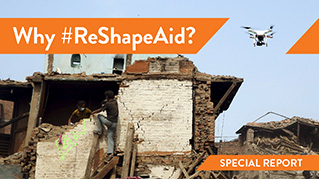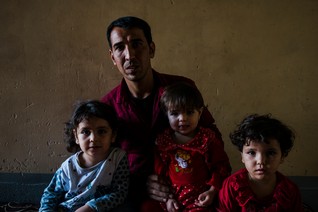Children who live in Ngombe, one of many slums in Zambia's capital Lusaka, often don't have a choice but to play in the same areas where they relieve themselves, a practice that creates many health risks.
Because of lack of toilets, 20 percent of Ngombe's 120,000 residents practice open defecation, according to Brian Chanda, plant superintendent at Ngombe Water Trust, a community group which manages the slum's water supply.
Other residents often use 'flying toilets', throwing excrement out in plastic bags, or pit latrines, which are often full, according to international charity WaterAid.
Poor sanitation is linked to transmission of diseases such as cholera, diarrhoea, dysentery, hepatitis A, typhoid and polio, according to the World Health Organisation (WHO).
Infants and children residing in slums are at a much bigger risk and have a greater incidence of diarrhoeal illness than their peers in better off parts of the city; they are also less likely to survive beyond their fifth birthdays.
Universal access to clean water and sanitation is one of a raft of development targets that world leaders are due to endorse later this month.
But poor countries like Zambia will be hard pushed to achieve the objective, experts say. The southern African country has managed to nearly halve the proportion of people practising open defecation to 16 percent in 2012 from 26 percent in 1990.
Only about three in five Zambians have access to toilets including pit latrines or public toilets, according to the United Nations. Only 45 percent of schools have toilets.
The World Bank says Zambia loses $194 million, equivalent to 1.3 percent of its gross domestic product, every year due to illness and premature death from poor sanitation.




























